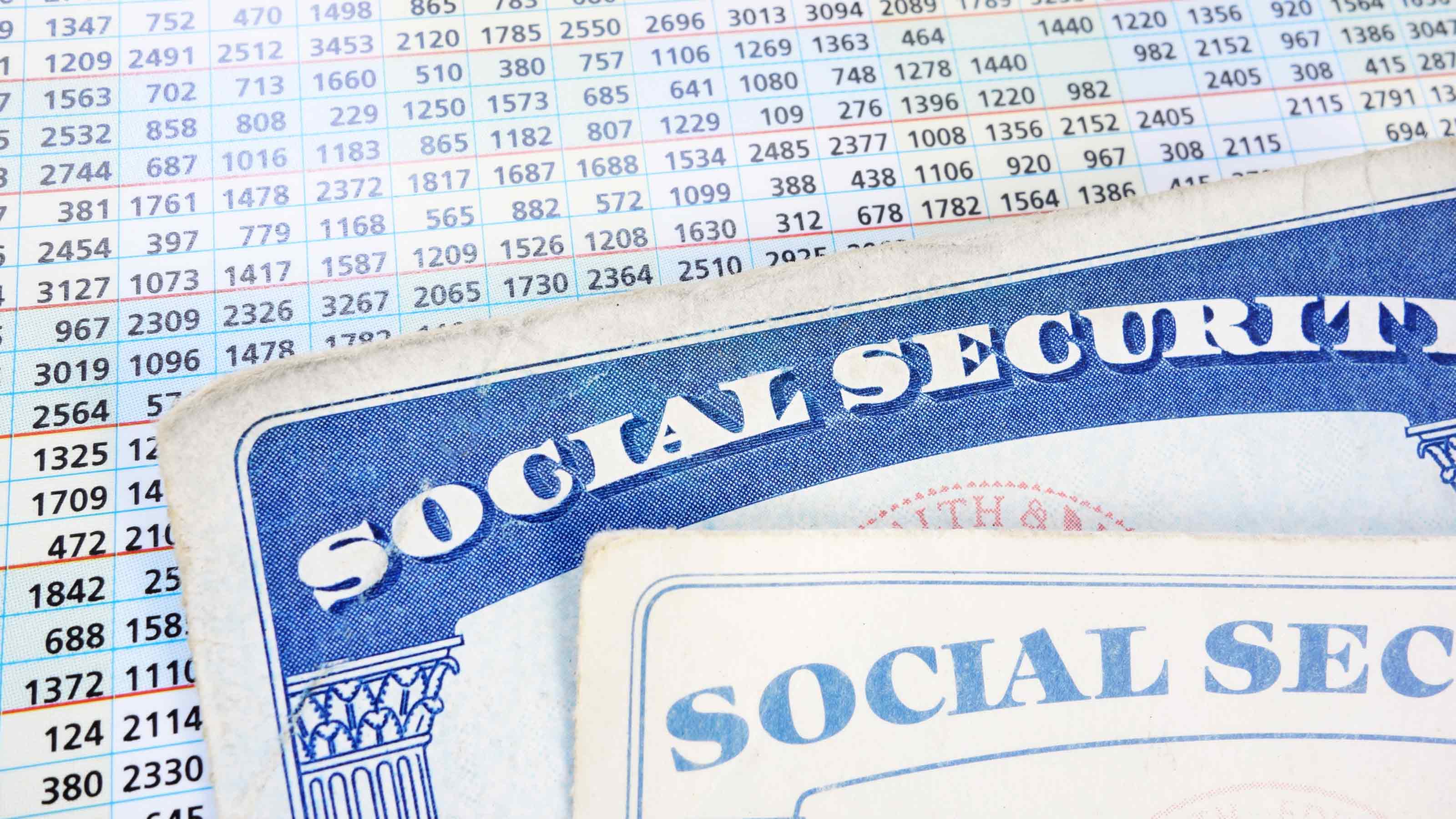You Are NOT Ready to Retire Until You Can Answer These 7 Questions
The obvious ones include how you will claim Social Security and whether you have enough money to retire, but there are other issues to think about as well — and some have nothing to do with money.


Profit and prosper with the best of Kiplinger's advice on investing, taxes, retirement, personal finance and much more. Delivered daily. Enter your email in the box and click Sign Me Up.
You are now subscribed
Your newsletter sign-up was successful
Want to add more newsletters?

Delivered daily
Kiplinger Today
Profit and prosper with the best of Kiplinger's advice on investing, taxes, retirement, personal finance and much more delivered daily. Smart money moves start here.

Sent five days a week
Kiplinger A Step Ahead
Get practical help to make better financial decisions in your everyday life, from spending to savings on top deals.

Delivered daily
Kiplinger Closing Bell
Get today's biggest financial and investing headlines delivered to your inbox every day the U.S. stock market is open.

Sent twice a week
Kiplinger Adviser Intel
Financial pros across the country share best practices and fresh tactics to preserve and grow your wealth.

Delivered weekly
Kiplinger Tax Tips
Trim your federal and state tax bills with practical tax-planning and tax-cutting strategies.

Sent twice a week
Kiplinger Retirement Tips
Your twice-a-week guide to planning and enjoying a financially secure and richly rewarding retirement

Sent bimonthly.
Kiplinger Adviser Angle
Insights for advisers, wealth managers and other financial professionals.

Sent twice a week
Kiplinger Investing Weekly
Your twice-a-week roundup of promising stocks, funds, companies and industries you should consider, ones you should avoid, and why.

Sent weekly for six weeks
Kiplinger Invest for Retirement
Your step-by-step six-part series on how to invest for retirement, from devising a successful strategy to exactly which investments to choose.
You know what they say about timing: It’s everything. That’s especially true about retirement.
COVID-19 has thrown many well-laid retirement plans into disarray. Maybe you planned to work a few more years, but now your industry is in upheaval, and you’re ready to call it quits. Or perhaps retirement was around the corner for you, but now you’re worried about an economic downturn so you plan to stay on the job longer.
Clearly, there’s a lot that goes into deciding your optimal retirement date. It requires a careful analysis of your finances, to be sure that your assets are adequate to support you in the retirement you want.
But there are also deeper, non-financial considerations. Has your industry experienced so much dislocation that remaining in the job doesn’t seem like an option anymore? Will you find meaning and purpose in what you do next?
Finances are only one component of retirement planning. There are emotional considerations as you move into the next stage of your life. You want to make sure that you’re emotionally prepared for retirement, because it may be hard to change course. For that reason, our firm employs a life coach to help our clients work through those emotional issues. I encourage everyone thinking about retirement to work with one too.
Because retirement has so many moving parts, I recommend starting the conversation at least five years before your target date so you have time to make adjustments or rethink your assumptions. To help you get a game plan together, ask yourself these seven questions.

1. How much more do I have left in the tank?
Retiring at 65 may be thing of popular culture. But it’s far from a hard-and-fast rule. With today’s longevity trends, retiring at 65 could mean being retired nearly as long as you spent in your career. That’s not what many people want.
If you love your job — or even if you don’t mind it — why retire? Just because the calendar says you’re at retirement age doesn’t mean that’s the right path for you. On the other hand, if you can’t stand the thought of even one more day at work, maybe the solution isn’t retirement but a change to your work situation. Maybe you need a new job … or new responsibilities at your current job. On the other hand, you might consider reducing your hours so you have more time for other, more gratifying pursuits.

2. What will I do in retirement?
For many people, their identity is wrapped up in what they do for a living. Without the structure of a workday, it’s not uncommon to feel unmoored in retirement. I’ve found that to be especially true for clients who run their own businesses.
Your retirement will be a lot more gratifying if you are retiring to something rather than retiring from something. Spend the year before your intended retirement mapping out your time in retirement, whether it’s traveling, spending time with family, learning, volunteering or consulting.

3. Do I have enough money to retire?
As a financial adviser, this is the question I get most often as people are contemplating retirement. There are several questions wrapped up into this.
On the one hand, people want to know if their assets will support an income stream that’s sufficient to fund their lifestyle. On the other, they aren’t sure how much income they will need in retirement.
The reason is that they haven’t figured out the answer to question No. 2. If you don’t know how you’ll spend your time, it’s hard to know how much money you will need. A retirement full of travel to far-flung locales and golfing obviously costs much more than one of hiking and volunteering at your local school.
However you plan to spend your retirement, make sure you factor in a reasonable rate of inflation (around 3% per year) into your calculations. If you peg your initial retirement income at $10,000 a month, that won’t be enough 10 years from now.

4. How will I pay for health care?
Health care is most retirees’ largest expense, yet it’s one that many people don’t adequately plan for.
If you are retiring before age 65, you need to think about how you’ll pay for health insurance before Medicare kicks in. You will probably have the option to buy COBRA from your previous employer, but those policies can be pricey and only last for up to 18 months. What will you do for insurance until you are eligible for Medicare?
You can purchase private health insurance on your own, but these plans are expensive. You might be able to find more affordable options through the Affordable Care Act health care exchange in your state.
Remember, even with Medicare, you can still have significant out-of-pocket health care outlays. According to the Fidelity Retiree Health Cost Estimate, a 65-year-old couple retiring in 2020 will need $295,000 to pay for medical costs not covered by Medicare.
And don’t forget about long-term care, which has the potential to derail your retirement if not accounted for properly. Consider this: A private room in a nursing home averages over $8,800 a month, reports Genworth, the insurance company. What’s more, a person turning 65 today has a 70% chance of needing some type of long-term care, according to the U.S. Department of Health and Human Services.

5. What are my current liabilities, and will they go away once I retire?
Your retirement doesn’t solely impact you. It may have ripple effects. For example, some people might be paying alimony to an ex-spouse or be supporting adult children. Will you be able to continue this level of support once you turn off your income spigot?
Naturally, you may be willing to work a few years longer if your children aren’t yet grown or you are legally obligated to continue spousal support. But if you’re supporting adult children, now might be a good time to stop paying their way so you don’t worry about outliving your money.

6. Where will I live?
Where to live is the age-old retirement question. Moving to a state with a lower cost of living and low state income taxes can help you stretch your retirement dollars. Before you sell your Pacific Northwest house in lieu of a spread in the Sunbelt, consider your decision from multiple angles.
Some states, such as Texas, don’t tax income. But they have high sales and property taxes to make up for it. Others might have the tax savings you crave, but they might not offer the access to high-quality health care providers you need to make it a comfortable retirement.

7. Am I maximizing Social Security?
For all the talk about insolvency, Social Security still makes up a big part of most people’s retirement income and probably will for the foreseeable future. The average retiree receives 40% of their pre-retirement income from Social Security. But the program is complicated and requires you to weigh several decisions in order to maximize its benefit.
The most crucial is timing. You are first eligible to take Social Security at 62. But collecting prior to your full retirement age (between 66 and 67) will mean a reduced benefit.
If, on the other hand, you wait beyond your full retirement age, your benefit will likely increase by 8% a year until age 70. Try finding a risk-free rate of return anywhere else.
Knowing when to retire can be complicated. It’s full of financial and emotional decisions. Like all good plans, it’s better to start evaluating your options well in advance and working with professionals who can help you navigate a course of action for your specific needs.
Content in this material is for general information only and not intended to provide specific advice or recommendations for any individual. This is a hypothetical example and is not representative of any specific situation. Your results will vary. The hypothetical rates of return used do not reflect the deduction of fees and charges inherent to investing.
Profit and prosper with the best of Kiplinger's advice on investing, taxes, retirement, personal finance and much more. Delivered daily. Enter your email in the box and click Sign Me Up.

For over 30 years, Andy Schwartz has provided financial planning and wealth management services to clients throughout the country. As an independent adviser, his advice and guidance is always personalized and focused on the client's success. He is the founder and principal of Bleakley Financial Group, a wealth management firm servicing over $5.5 billion in client brokerage and advisory assets.
-
 Ask the Tax Editor: Federal Income Tax Deductions
Ask the Tax Editor: Federal Income Tax DeductionsAsk the Editor In this week's Ask the Editor Q&A, Joy Taylor answers questions on federal income tax deductions
-
 States With No-Fault Car Insurance Laws (and How No-Fault Car Insurance Works)
States With No-Fault Car Insurance Laws (and How No-Fault Car Insurance Works)A breakdown of the confusing rules around no-fault car insurance in every state where it exists.
-
 7 Frugal Habits to Keep Even When You're Rich
7 Frugal Habits to Keep Even When You're RichSome frugal habits are worth it, no matter what tax bracket you're in.
-
 For the 2% Club, the Guardrails Approach and the 4% Rule Do Not Work: Here's What Works Instead
For the 2% Club, the Guardrails Approach and the 4% Rule Do Not Work: Here's What Works InsteadFor retirees with a pension, traditional withdrawal rules could be too restrictive. You need a tailored income plan that is much more flexible and realistic.
-
 Retiring Next Year? Now Is the Time to Start Designing What Your Retirement Will Look Like
Retiring Next Year? Now Is the Time to Start Designing What Your Retirement Will Look LikeThis is when you should be shifting your focus from growing your portfolio to designing an income and tax strategy that aligns your resources with your purpose.
-
 I'm a Financial Planner: This Layered Approach for Your Retirement Money Can Help Lower Your Stress
I'm a Financial Planner: This Layered Approach for Your Retirement Money Can Help Lower Your StressTo be confident about retirement, consider building a safety net by dividing assets into distinct layers and establishing a regular review process. Here's how.
-
 The 4 Estate Planning Documents Every High-Net-Worth Family Needs (Not Just a Will)
The 4 Estate Planning Documents Every High-Net-Worth Family Needs (Not Just a Will)The key to successful estate planning for HNW families isn't just drafting these four documents, but ensuring they're current and immediately accessible.
-
 Love and Legacy: What Couples Rarely Talk About (But Should)
Love and Legacy: What Couples Rarely Talk About (But Should)Couples who talk openly about finances, including estate planning, are more likely to head into retirement joyfully. How can you get the conversation going?
-
 How to Get the Fair Value for Your Shares When You Are in the Minority Vote on a Sale of Substantially All Corporate Assets
How to Get the Fair Value for Your Shares When You Are in the Minority Vote on a Sale of Substantially All Corporate AssetsWhen a sale of substantially all corporate assets is approved by majority vote, shareholders on the losing side of the vote should understand their rights.
-
 How to Add a Pet Trust to Your Estate Plan: Don't Leave Your Best Friend to Chance
How to Add a Pet Trust to Your Estate Plan: Don't Leave Your Best Friend to ChanceAdding a pet trust to your estate plan can ensure your pets are properly looked after when you're no longer able to care for them. This is how to go about it.
-
 Want to Avoid Leaving Chaos in Your Wake? Don't Leave Behind an Outdated Estate Plan
Want to Avoid Leaving Chaos in Your Wake? Don't Leave Behind an Outdated Estate PlanAn outdated or incomplete estate plan could cause confusion for those handling your affairs at a difficult time. This guide highlights what to update and when.
